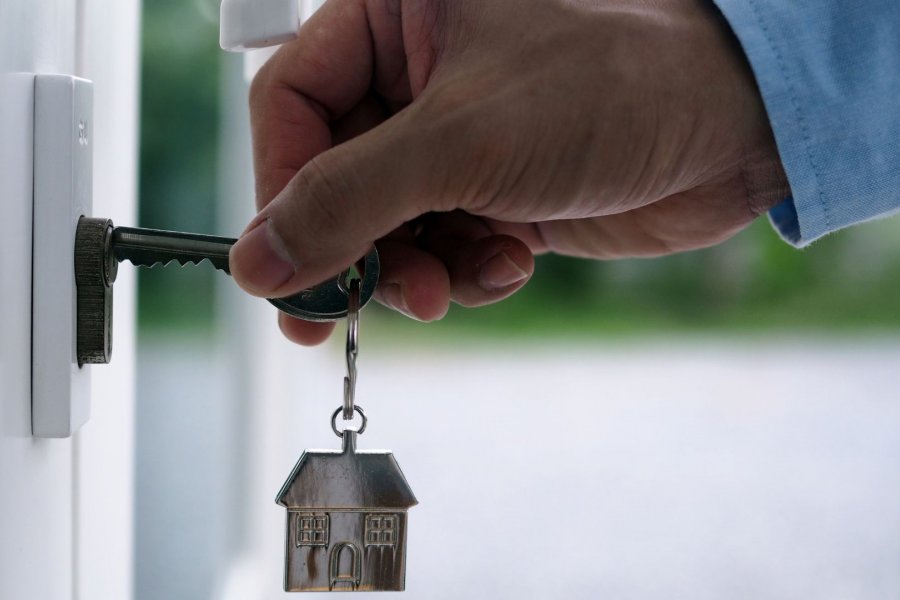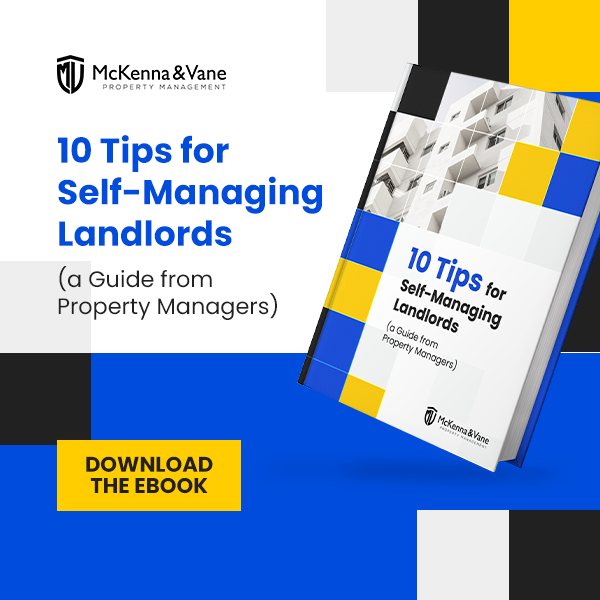Essential Tips for First-Time Landlords

Landlording can be anything but easy, especially if you’re doing it for the first time. Filling vacancies, screening tenants, collecting rent, and filing taxes, among many other things, can seem stressful and time-consuming.
Be that as it may, this isn’t to say that being a landlord for the first time isn’t doable. It is, as long as you’ve armed yourself with the right skills and strategies. In today’s blog, we’ll walk you through 8 essential tips to become a successful first-time landlord.
1. Draft a Proper Lease Agreement
Avoid handshake deals if you want to be a successful landlord. Regardless of whom you’re renting your property to, make sure that they sign a lease before moving in.
A lease is a contractually binding legal document. It helps outline both parties’ rights and responsibilities, as well as the expectations you have of the tenant. Examples of such expectations include:
• When and where the tenant must pay rent
• The tenant’s responsibilities regarding repairs and maintenance
• Whether subletting is allowed. And if so, the rules the tenant must abide by.
• Notice requirements when breaking a periodic lease
Make sure to answer any questions the tenant may have regarding any policy or rule in the lease prior to its signing. This will help avoid potential future confusion or misunderstanding.
2. Know Your Tax Obligations
You will now be running a business and the taxman will demand their dues every tax season. The potential monthly rental payments you’ll receive will be the income and any money you’ll use towards maintaining the property will be the expenses.
.jpg)
Since tax matters can be a tad bit complicated, it could be in your best interest to hire a tax advisor. They will help you know your tax obligations, as well as help you know how you can maximize your tax deductions.
3. Let Tenants Know the Business Hours
Emergencies will crop up eventually and, as emergencies, require instant attention. That said, to avoid working around the clock, let your tenant know what exactly constitutes an emergency and what can wait for regular business hours.
Examples of emergency maintenance issues include electrical issues, flooding, broken water lines, frozen pipes, broken gas pipes, and carbon monoxide detection. As a landlord, you’ll need to fix these issues right away. The state of Maryland requires that issues that impact a tenant’s habitability be fixed within a “reasonable” time frame.
As for maintenance issues that can wait for regular business hours, they include the following.
• Minor leaks
• Disputes regarding parking
• Lack of hot water
• A malfunctioning appliance
• A broken ice maker
• Noise complaints
In addition, make sure that tenants know when you’re available and how they can contact you. Make it clear that you’ll only be available during normal business hours unless the issue is an emergency.
4. Make the Property Desirable to Prospective Tenants
This is the best way to make your property stand out and maximize occupancy rates while also reducing the occurrence of holdover tenants and squatters. The following are some tips to help you in this regard.

• Charge tenants the right rental rate
• Give the home a thorough cleaning
• Repair any pre-existing damage
• Boost curb appeal
• Add extra storage areas, especially if you’re targeting families
• Add a security system
5. Market the Property Extensively
You may have the best home, but if no one knows about it, you may have a hard time renting it out. Getting the word out as fast as possible and as extensively as you can should be your aim.
Begin by drafting a proper rental ad. Write a proper headline, be descriptive about the property’s features, and include high-quality photos. Next, start the syndication process.
Use a combination of both ‘traditional’ and conventional marketing strategies. Including, yard signs, bulletin boards, and flyers and posters, as well as rental listing sites and social media ads.
Marketing your rental property extensively will ensure you reach as many prospective tenants’ eyeballs as possible. In turn, this will maximize your chances of landing a high-quality tenant.
6. Screen Prospective Tenants Thoroughly
After a successful marketing campaign, you’ll have a large pool of prospective tenants. Now, to differentiate who makes the cut and who doesn’t, you’ll need to have a screening process in place.
The process should be able to screen prospects based on a fair and consistent criteria. Things to consider should include the following.
• How much the tenant is making every month
• Their credit rating
• Their employment status
• Their criminal status
• Their rental background
.jpg)
It also goes without saying that the process must align with the dictates of the Maryland fair housing laws. Essentially, you must treat every prospective tenant fairly regardless of certain protected classes. The classes are: race, color, nationality, religion, familial status, disability, sex, sexual orientation, gender identity, and marital status.
If you decide to allow pets in your rental, make sure to conduct proper pet screening as well.
7. Familiarize Yourself with Maryland Landlord-Tenant Laws
Maryland, just like the rest of the 49 U.S. states, requires landlords to abide by certain rules when renting out their property. The following are examples of such rules.
• You must make all requested repairs within 30 days
• You must follow the proper eviction process when evicting tenants. You must not do so out of retaliation or for discriminatory reasons.
• You must abide by the state’s security deposit rules. Such as, not charging tenants a deposit exceeding the rent of two months.
• You must treat all tenants regardless of their color, race, sex, religion, or any other protected class under Maryland fair housing laws
• You must provide your tenant with certain mandatory disclosures, such as on the use of lead-based paint
8. Hire a Property Management Company
Being a landlord is never easy, especially for first-time or out-of-state landlords. If all of this seems overwhelming or you already have a full-time job, hiring a property manager may be the best decision.
Bottom Line
While this list isn’t by any means exhaustive, it gives a basic overview of what first-time landlords should expect. As you can see, landlording isn’t all about collecting rent at the end of every month. There is more involved.
If, at any point, it becomes overwhelming, McKenna & Vane Property Management can help. We’re one of the top property management companies in Maryland. Get in touch to learn more!
